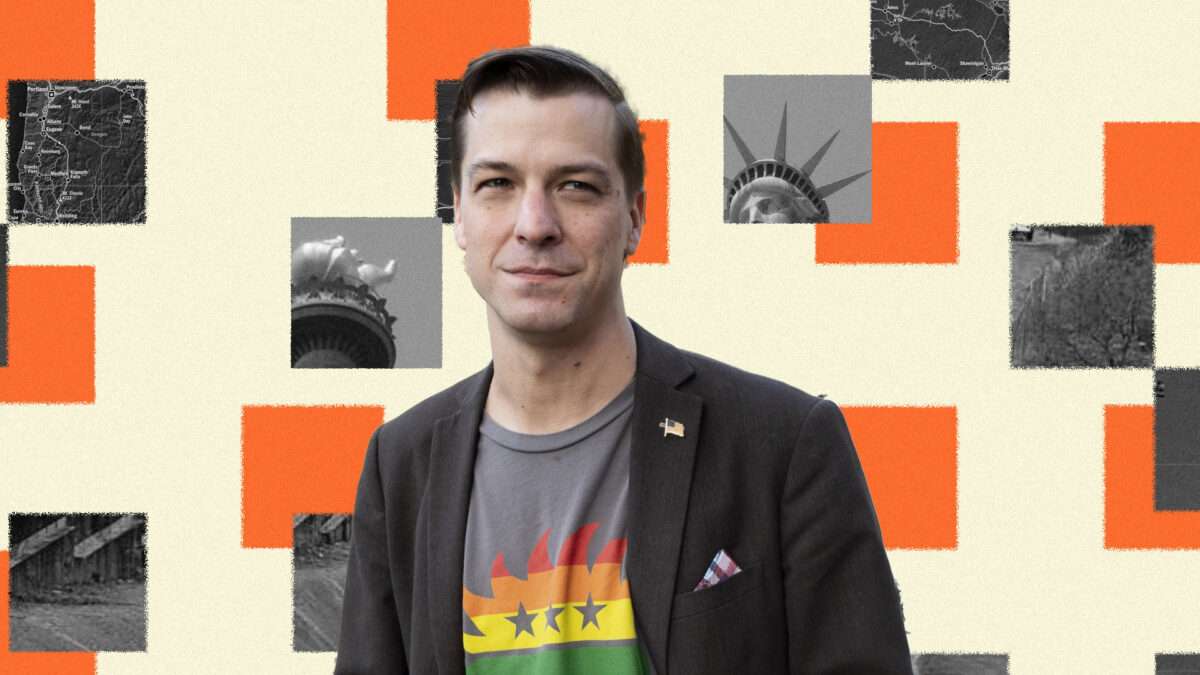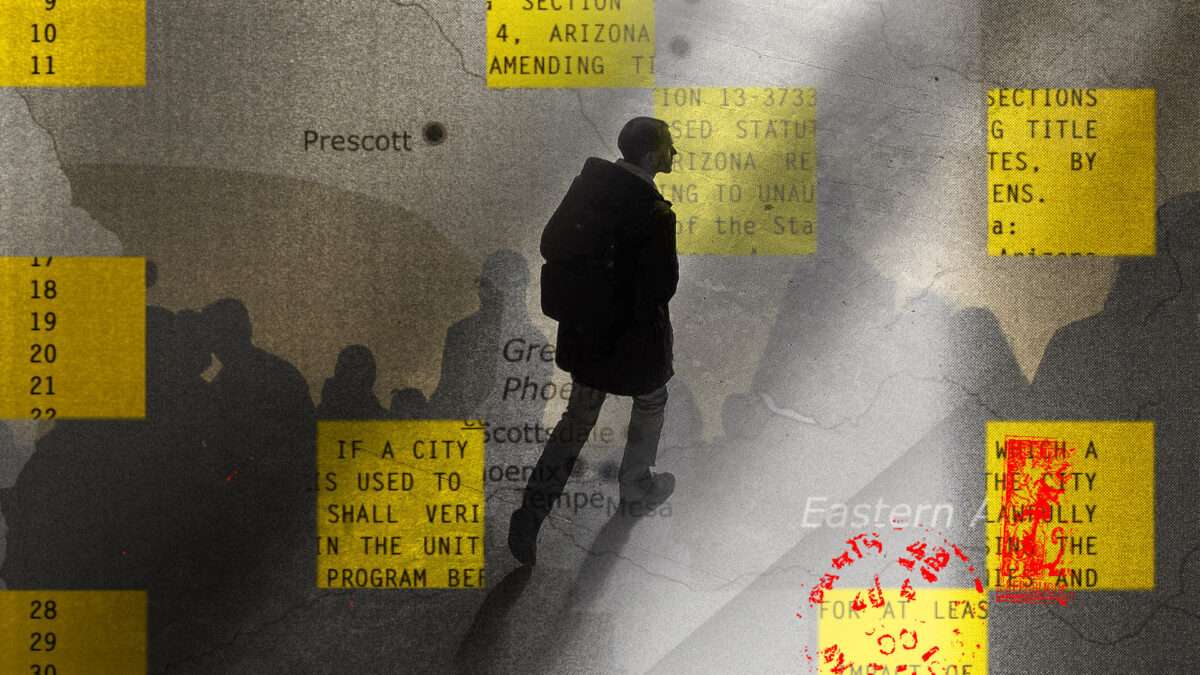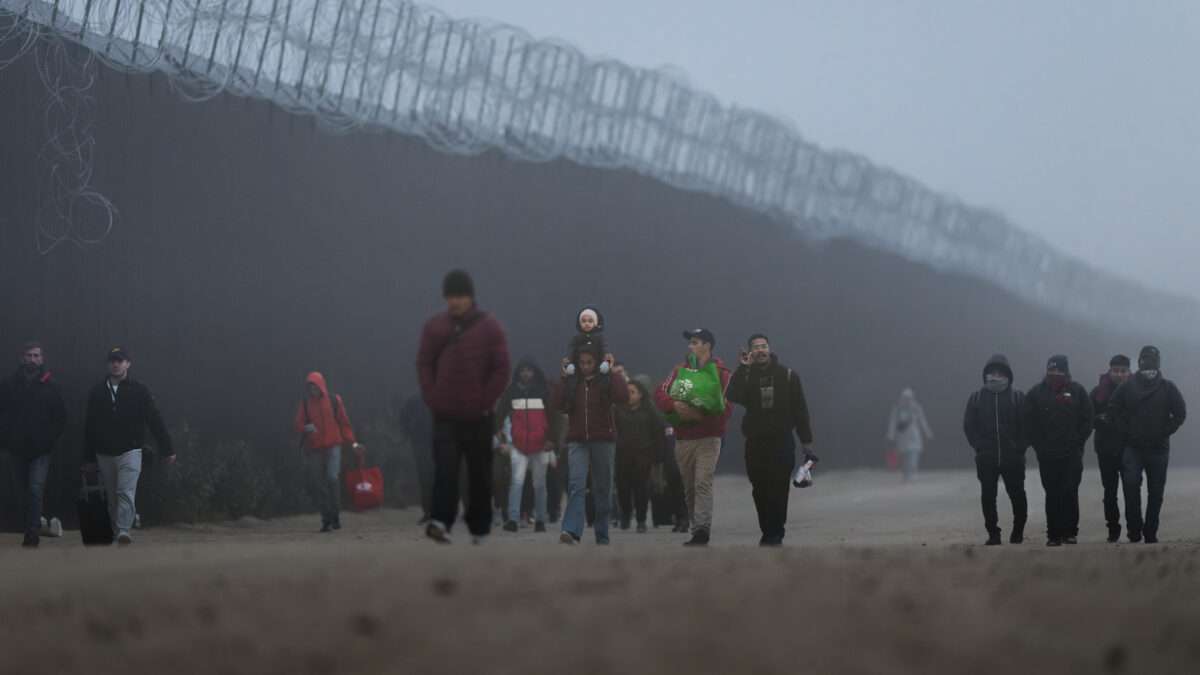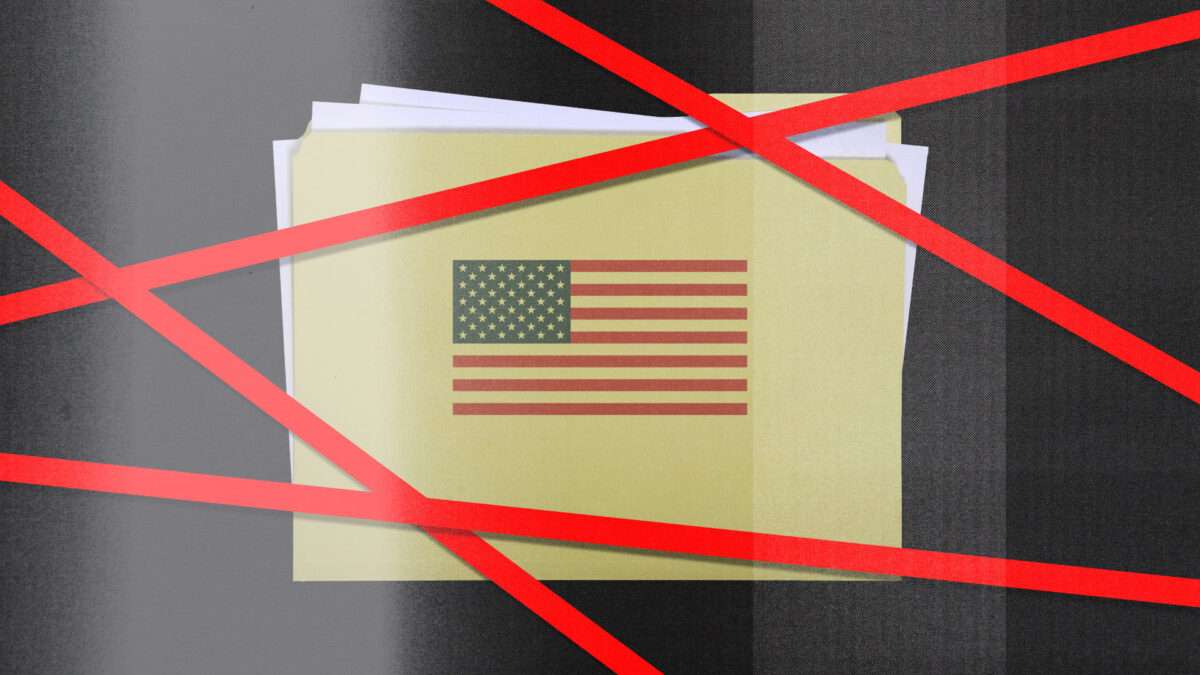Libertarian Candidate Chase Oliver Wants To Bring Back 'Ellis Island Style' Immigration Processing

Chase Oliver, who secured the Libertarian Party's presidential nomination on Sunday night, says "there are few better examples of 'bad government' than the overly complex current laws and regulations involving immigration."
"If we can allow peaceful people to be peaceful, we can more easily and effectively end actual crimes at our border and make our communities, immigrant and non-immigrant alike, more safe and prosperous," explains a statement provided by the Oliver campaign.
Neither President Joe Biden nor former President Donald Trump has an immigration platform—or record—that is a clear fit for supporters of free migration and a less intrusive federal government. Oliver's campaign argues that he offers a different approach, calling out the use of eminent domain "to build permanent walls or structures on properties that do not wish to have them" and the "arbitrary caps" that are prevalent in the U.S. immigration system.
"What Chase offers is a way for peaceful people to move freely, safely, and lawfully," continues the statement.
The Libertarian candidate proposes that the U.S. "return to an Ellis Island style of processing immigrants," which would involve simplifying the immigration process "for those who wish to come here to work and build a better life." It shouldn't take "months or years" for those immigrants to receive medical and criminal checks and work authorization, but days "at most."
Oliver also supports creating a path to citizenship for the country's undocumented immigrants. Millions of undocumented immigrants are "doing essential jobs, paying payroll taxes, and contributing to our economic growth," reads his platform. "Formalizing this arrangement" will "allow them to further contribute to the economy by meeting critical labor demand and reducing inflationary pressures" and save "taxpayers billions of dollars in enforcement costs," Oliver's website says.
The platform outlines a pathway to citizenship for recipients of Deferred Action for Childhood Arrivals, or DACA, the policy enacted by President Barack Obama that defers deportation action and offers work authorization to immigrants brought to the U.S. illegally as kids. Oliver's platform also includes a pathway to citizenship for the children of long-term temporary visa holders, a class of legally present immigrants who must self-deport at 21 if they can't secure legal status before then. There are currently over 200,000 dependent visa holders waiting for relief.
The last point is a unique one. Dip Patel, founder of Improve the Dream, an organization that advocates for solutions for those visa holders, noted that it may be the first presidential platform to outline that relief explicitly. "It is great to see this common sense idea to allow children raised and educated in America with lawful status be [explicitly] mentioned on a presidential candidate's immigration platform," Patel tells Reason. He hopes that all future candidates' platforms will "include this and other nuanced solutions affecting so many who have spent their entire lives in America."
Oliver wants to expand the H-1B visa program, a nonimmigrant visa pathway for highly skilled, highly educated workers. He also supports a startup visa, noting that 55 percent of American startups valued at over $1 billion or more were founded or co-founded by immigrants. This was the conclusion of 2022 research by the National Foundation for American Policy (NFAP), which also found that almost 80 percent of those billion-dollar companies have an immigrant founder or an immigrant in a key leadership position.
"It was great to see the Libertarian Party advocate for a startup visa and a higher level of H-1B visas for high-skilled professionals, particularly since Democrats and Republicans often try to coopt ideas from third parties," says Stuart Anderson, NFAP's executive director. "Our research shows making it easier for highly skilled individuals to remain in the United States, including as entrepreneurs, leads to more jobs, innovation and cutting-edge products for Americans."
Oliver's views on immigration have proven somewhat controversial among some in the Libertarian Party, including members of the Mises Caucus (which "advocated this year in an internal strategy document" to "rid references to…free immigration" from the party platform, reported Reason's Brian Doherty). Quizzed on Reason's Just Asking Questions podcast this week about whether he considered himself "an open borders libertarian," Oliver called it a "very ambiguous term" and reiterated his support for a "21st century Ellis Island."
"If you're there for peace, you just go right on in and get to work and contribute to the economy. You get a job," he continued. "And that will get 99.9 percent of the people quickly filed through the process so they can get to work and contribute to the economy instead of being stuck on welfare or charity programs as they are right now."
The post Libertarian Candidate Chase Oliver Wants To Bring Back 'Ellis Island Style' Immigration Processing appeared first on Reason.com.





